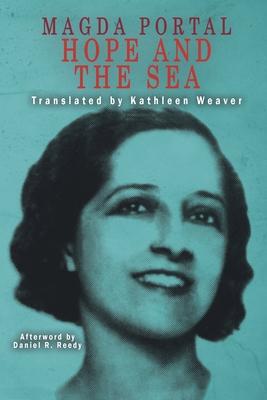"Magda is essentially lyrical and human. . . . In her early poems she is almost always the poet of tenderness. And her lyricism is precisely recognized in her humanity. In her poetry we find all the accents of a woman who lives passionately and vehemently, ignited by love and longing, and tormented by truth and hope".
- Jos Carlos Maritegui
Originally published in Lima in 1927, Magda Portal's Hope and the Sea immediately stood out as one of the most remarkable books to come out of the Peruvian literary avant-garde. Already an acclaimed poet by the age of twenty-three, Magda Portal became a key participant in the political and intellectual milieu surrounding Amauta magazine, eagerly absorbing the winds of change sweeping across the continent, embodying them within her own intensely personal experience. Hope and the Sea speaks from an intimate yet transcendental voice, which bravely faces the immensity of the sea, earthly forces and the depths of the human heart, ever with immense feeling for the suffering of the poor. Like her contemporaries Blanca Luz Brum, Alfonsina Storni and Juana de Ibarbourou, Magda Portal-feminist leader, avant-garde poet, political organizer-represents one of the crucial personalities at the turning point for feminist movements in Latin America.
